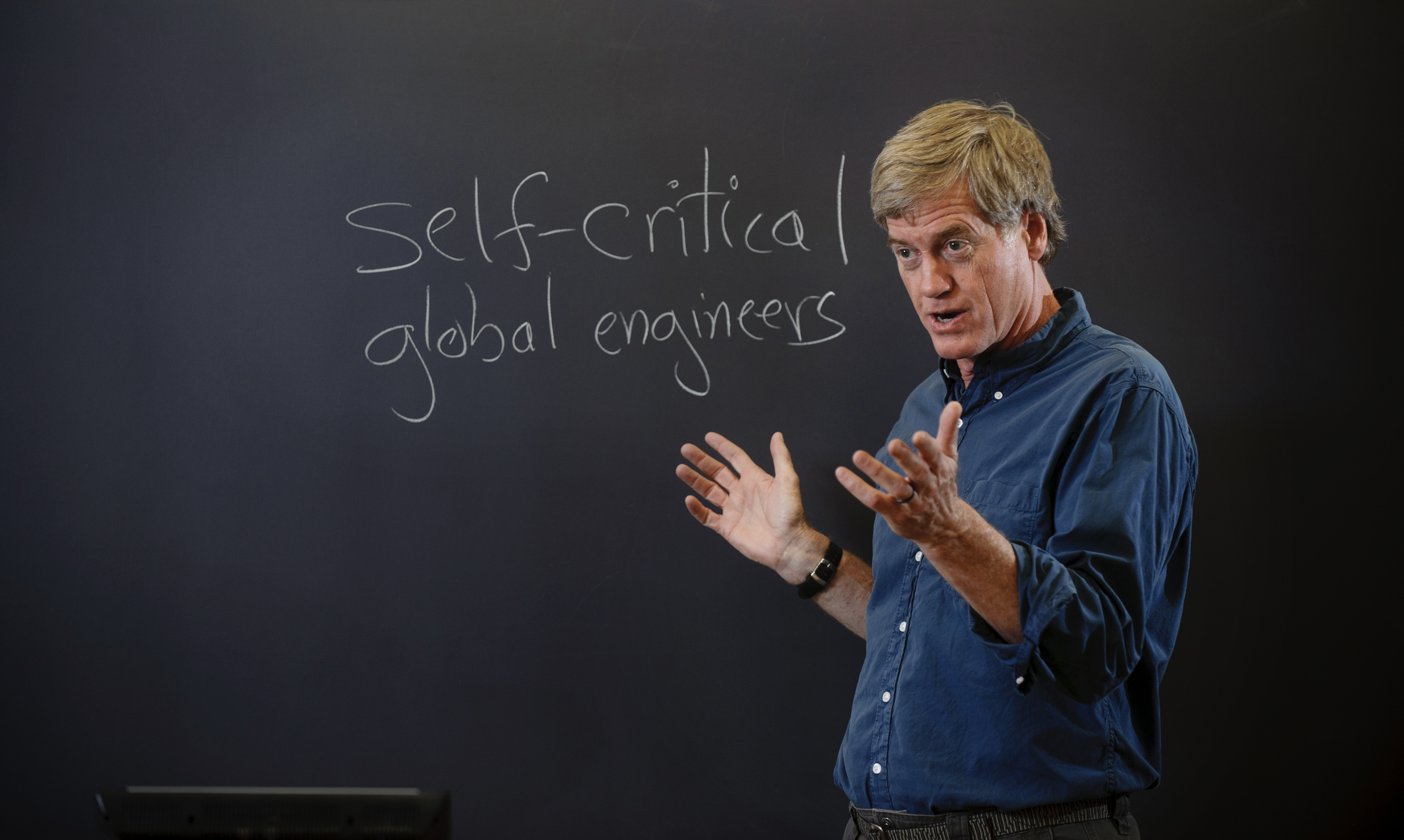Gary Downey elected president of the Society for Social Studies of Science

Gary Downey, Alumni Distinguished Professor of Science and Technology in Society, has been elected the 20th president of the Society for Social Studies of Science.
Following a year as president-elect, Downey will serve a two-year term for the international society of 1,500 members, roughly half of whom hail from outside the United States.
Downey has a long record of active professional leadership. As former director of Virginia Tech’s Science and Technology in Society graduate program, Downey led efforts to introduce new degree tracks and hire faculty in social/cultural studies and politics/policy studies of science and technology, while maintaining existing strengths in history and philosophy of science. These changes made the program attractive to a broader range of students and better prepared graduates to help scientists and engineers address the social dimensions of their work.
Recognized internationally as founding leader of a unique interdisciplinary field called Engineering Studies, Downey’s leadership has been instrumental in other professional organizations. He is founding organizer and co-coordinator of the International Network for Engineering Studies. As chair of the liberal education division at the American Society for Engineering Education, Downey led an effort to rename the division and rebuild it around the study of engineering in society.
Downey has similar plans for his new leadership position. “I'll focus on ways of highlighting [Science and Technology in Society] theory and other scholarly practices that work to make a difference beyond the field,” he said. “[Science and Technology in Society] programs have spread across the planet and gained significant scholarly status, yet these tend to be small and reside in relatively marginal physical and intellectual spaces.”
A Society for Social Studies of Science member for 29 years, Downey has served on its council and chaired its publications committee. He also led a commissioned study critiquing U.S. immigration policy’s impact on scholarly work. In concert with others, Downey says he would like to help the program scale up by adding formal recognition of accomplishments in teaching, program development, and outreach. He also says he intends to expand the sociey’s efforts worldwide by engaging and promoting research initiatives, accomplishments, and communities beyond its historical foci on United States and Western European scholarship.
Downey, who is also an affiliated professor in engineering education, women’s and gender studies, and sociology, was honored in 2011 with Virginia’s Outstanding Faculty Award, the commonwealth’s highest honor for faculty. A key curricular architect of Virginia Tech’s program in Science and Technology Studies, Downey has designed 15 new courses and also led one previous complete revision of the Ph.D. program.
Downey completed his master’s degree and Ph.D. at the University of Chicago and earned a pair of bachelor degrees from Lehigh University. His 65 publications include four books, three special journal issues, 30 articles in refereed journals, and 18 book chapters. He has received 17 external grants totaling $1.3 million. Downey has mentored 83 students in every Science and Technology in Society arena. He edits the Engineering Studies journal for Routledge, the Engineering Studies Series for MIT Press, and the Global Engineering Series for Morgan & Claypool.
Elected Fellow of the American Anthropological Association, he is also winner of the American Society for Engineering Education’s Sterling Omsted Award, recognizing “distinguished contributions to liberal education in engineering education.” At Virginia Tech, he won the William E. Wine Award for career excellence in teaching, the XCaliber Award for excellence in teaching with technology, the Graduate School award for best dissertation advisor, and the Edward S. Diggs Teaching Scholars Award for innovative scholarship in teaching.







